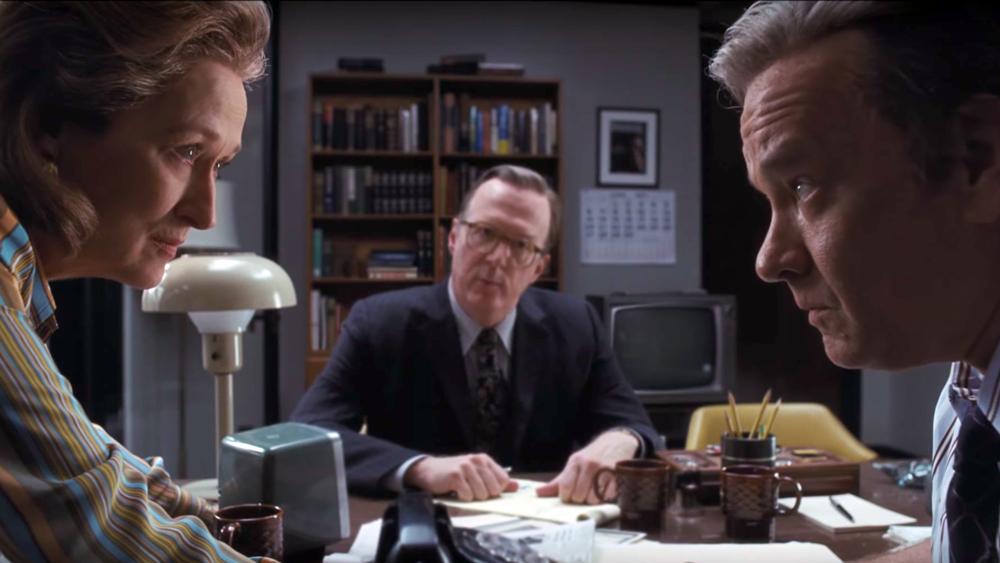
In recent years, the press has come under fire from many different directions. From President Donald Trump’s cries of “fake news” to the Charlie Hebdo massacre in 2015, sometimes believing that journalism still has a place in the modern world can be difficult. Rising to challenge that notion is director Steven Spielberg’s newest creation, “The Post,” which stands as a clear reminder of the power of determined journalists against forces as strong as the United States government.
“The Post” is based on the true story of The Washington Post’s involvement in the leaking of the Pentagon Papers, a top-secret government study that revealed that the United States had, without informing the public, greatly increased its effort in the Vietnam war. The New York Times manages to publish the papers before The Washington Post but is then silenced by a court injunction. Thus, the Post is confronted with a difficult decision: not publish stories regarding the papers, and deny the public of knowledge of a vast cover-up spanning four presidential administrations, or publish, and risk criminal charges from the Nixon administration.
Center stage in this story are Washington Post editor Ben Bradlee (Tom Hanks) and the heiress of the company, Katharine Graham (Meryl Streep). Hanks and Streep, through their compelling performances, add a depth to their already brilliantly written characters that makes them come to life onscreen. Hanks is all raw strength and toughness, his cigarette-roughened voice grating as he alternatively berates and rallies his subordinates in his drive to publish the papers. In contrast, Streep’s performance is quieter, with a more subtle strength. Graham, struggling to deal with the death of both her husband and father, unexpectedly inherits her father’s company, as well as the immediate pressure from bland, impersonal middle-aged executive men to begin trading publicly on the stop. Streep masterfully plays a woman who is barely holding it together — all smiles on the outside, but the surreptitious fidgeting of hands, and the occasional thousand-yard stare reveal the turmoil within.
Visually, the movie is nothing to scorn or sneeze at. Spielberg’s distinctive style of a variety of two-shots (shots with two characters in them) and tracking shots is present throughout the fillm; its serious tone is very appropriate for the serious matter at hand. In addition, the film utilizes a washed-out, almost bleached color tone that is evocative of 70s 9mm films, adding to the historical feel. And in a film dependent on the dialogue between characters, John Williams’s score is, as expected, minimal, aside from a few orchestral chords that accentuate a tense situation or a moment of breakthrough.
One slightly irksome detail is the plot’s pacing. The movie opens with a literal bang: a brief, Forrest-Gump-esque scene in Vietnam in which a squad of soldiers are ambushed in a jungle, one of whom is the military analyst who will go on to leak the Pentagon Papers. But after that, the tension noticeably decreases, and the next half-hour or so is taken up by the small details of running a business. Bradlee stresses about covering President Nixon’s daughter’s wedding, while Graham worries about the Post losing money. But for the most part, once the movie kicks into gear with Washington Post assistant editor Ben Bagdikian (Bob Odenkirk)’s meetup with the original source of the papers, the plot moves much faster than its initial slow start.
The overall significance of “The Post” deserves mention as well. Ultimately, it is the story of journalists who refused to back down when their government trampled First Amendment rights by censoring the New York Times. As Bradlee puts simply, near the climax of the film, “the only way to protect the right to publish is to publish.” In this regard, “The Post” should not be viewed as a simple nostalgia trip about what the journalists of a bygone age accomplished, but rather as a call to action, to be vigilant against infringements on the First Amendment rights. Bradlee and Graham fought to prove the public’s right to know, and in the process shaped American history. Their courage, portrayed so brilliantly in “The Post,” will surely be required from others in the coming years.
With more than enough top marks to offset its occasional stumble in plot, as well as its powerful message, “The Post” is entirely deserving of its two Academy Award nominations in Best Picture and Best Actress in a Leading Role for Meryl Streep.
“The Post”
1 hour, 54 minutes
PG-13 for language and brief war violence
Directed by Steven Spielberg
Starring Tom Hanks and Meryl Streep


